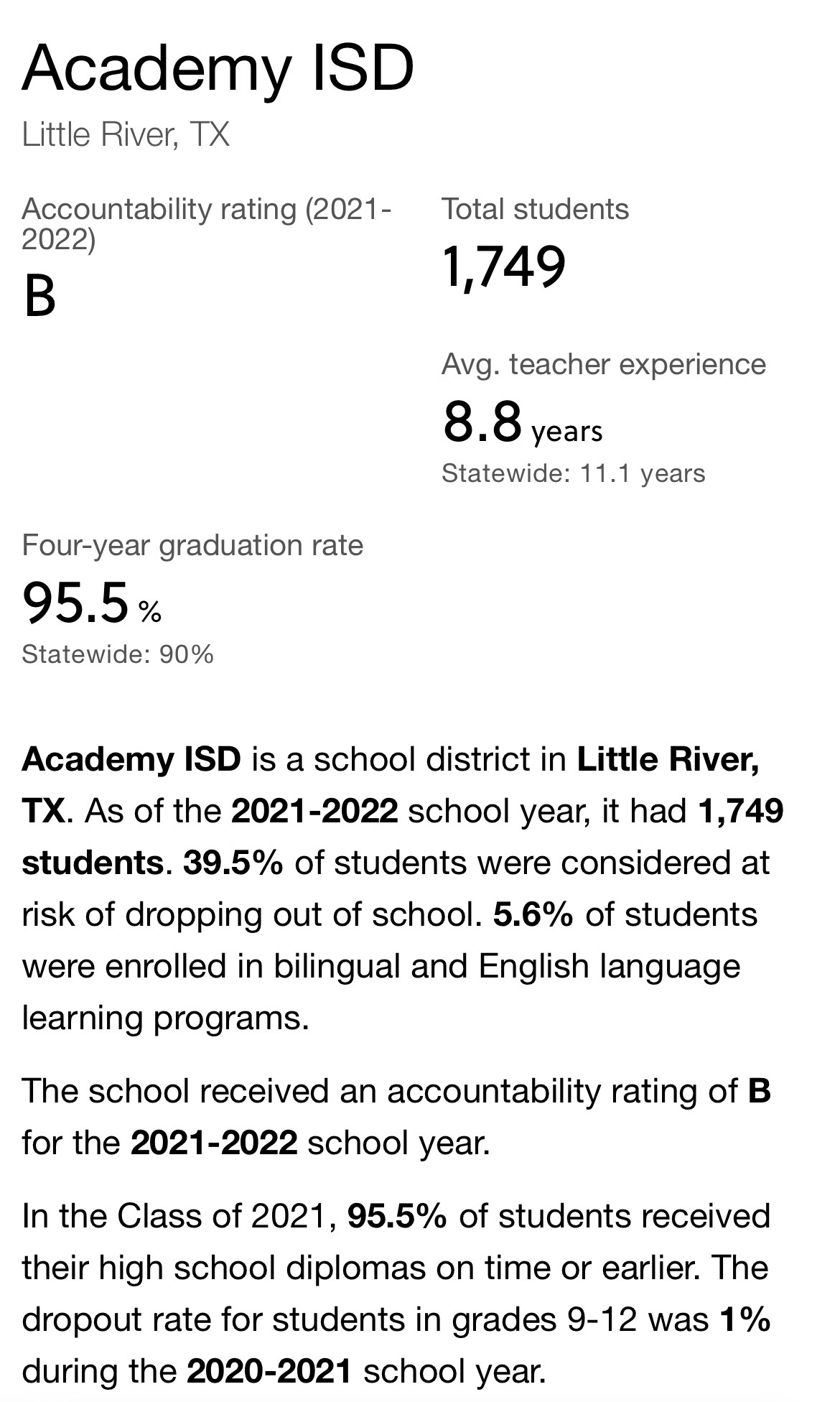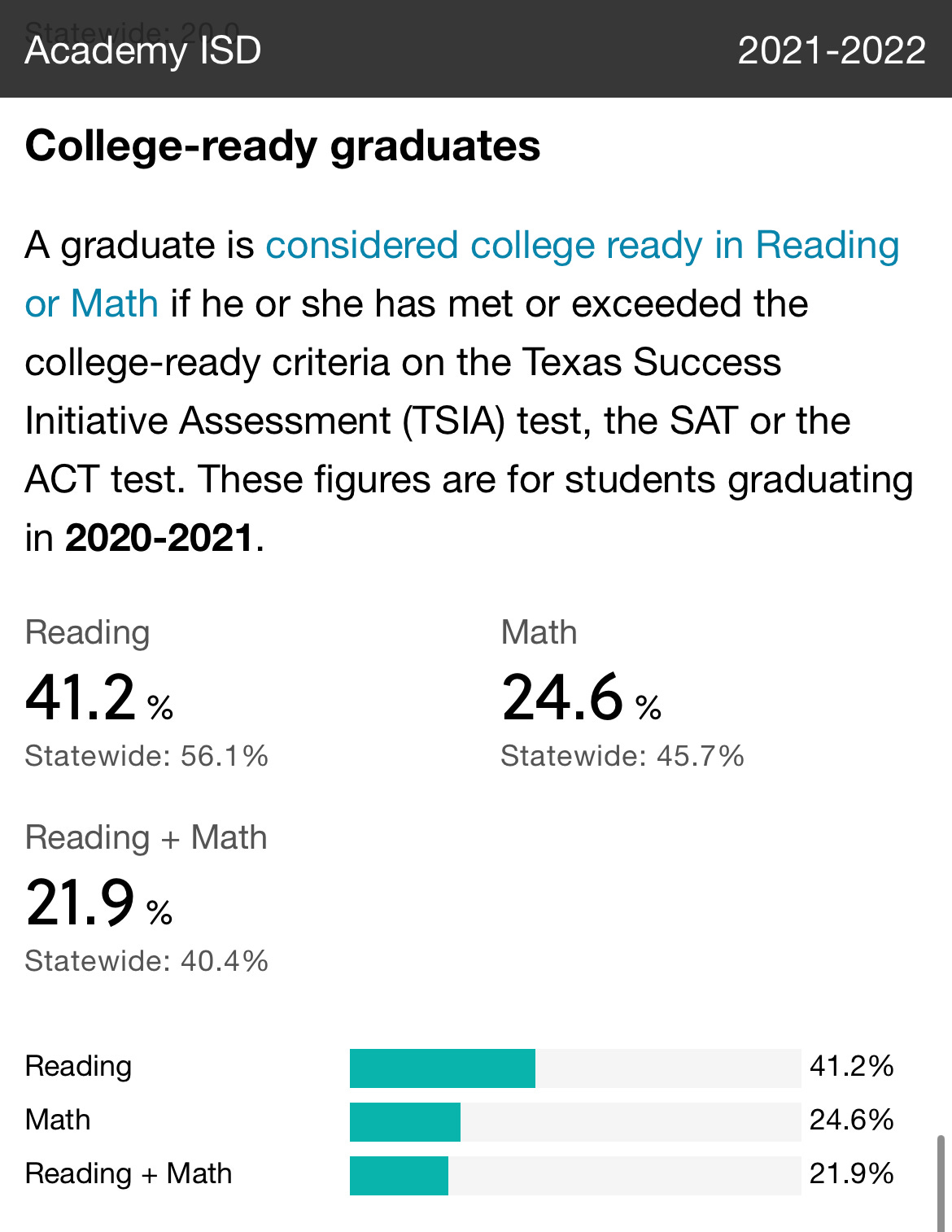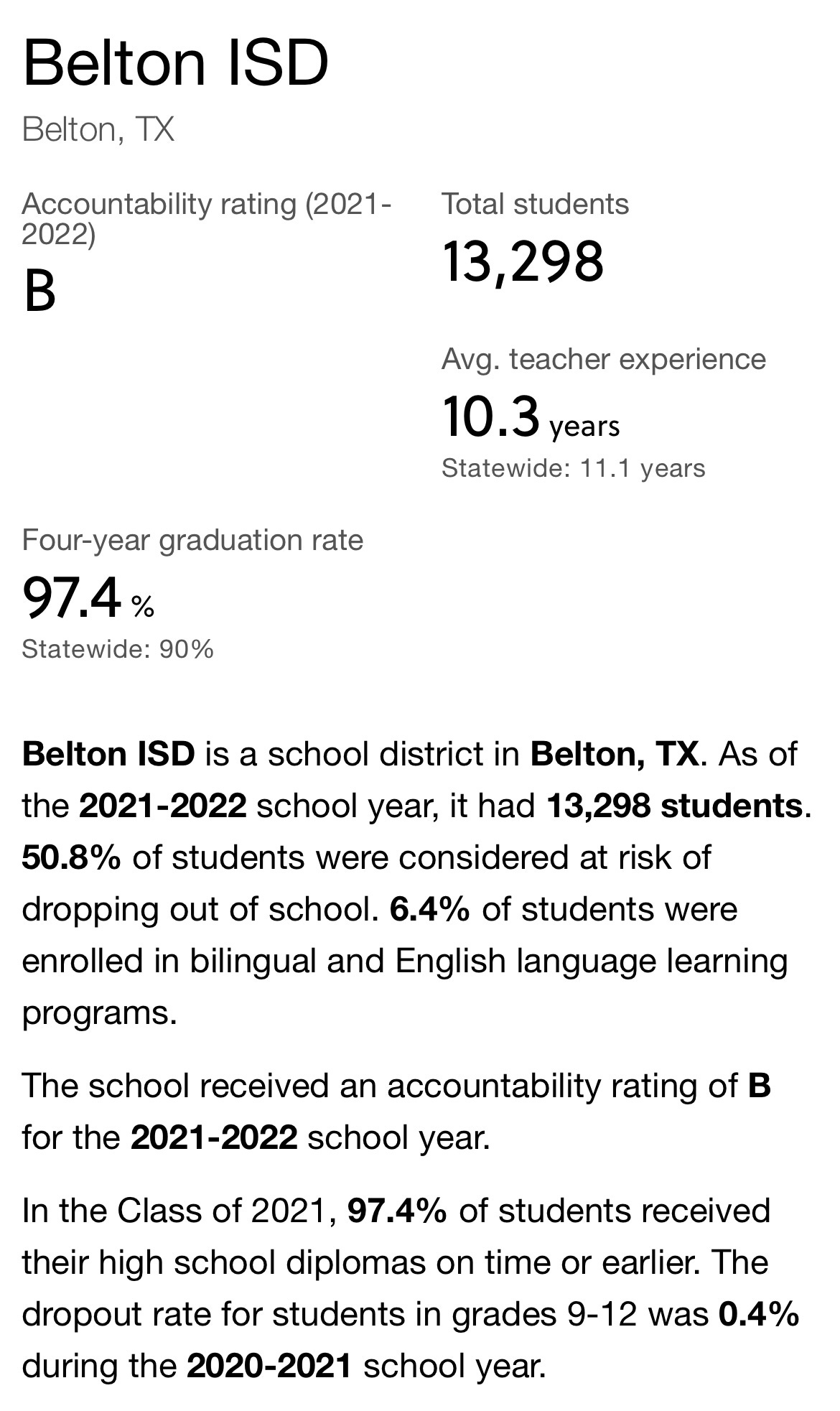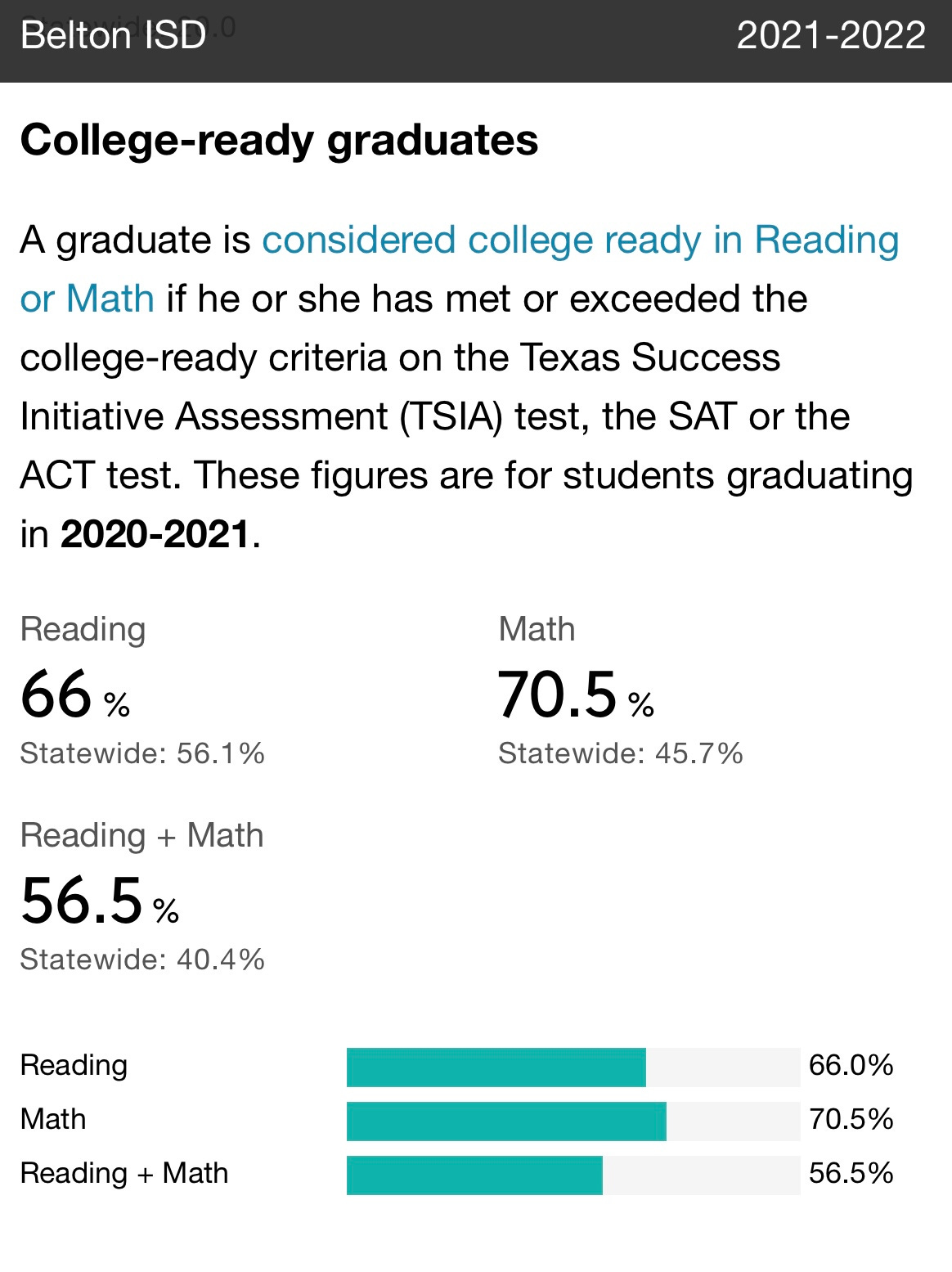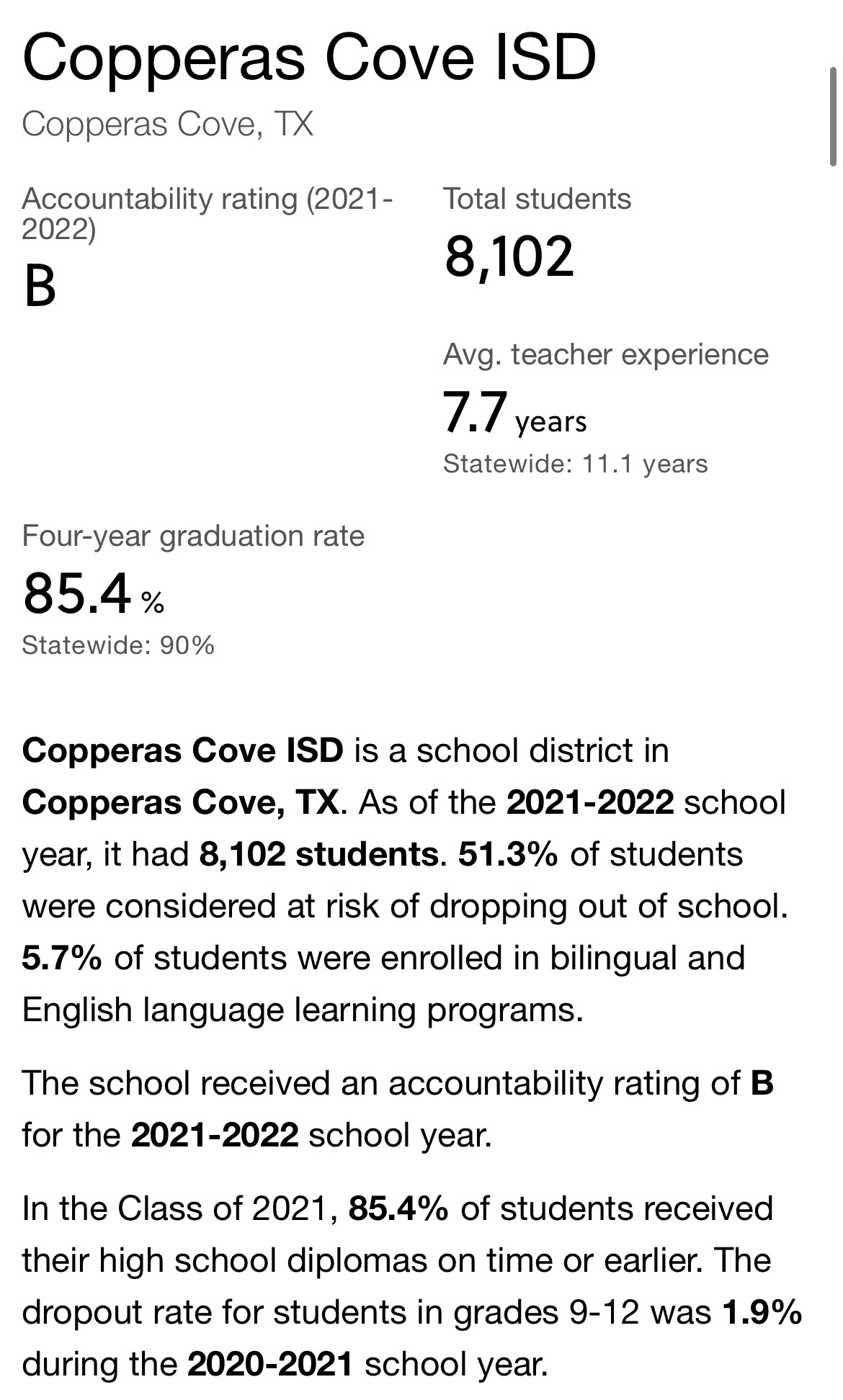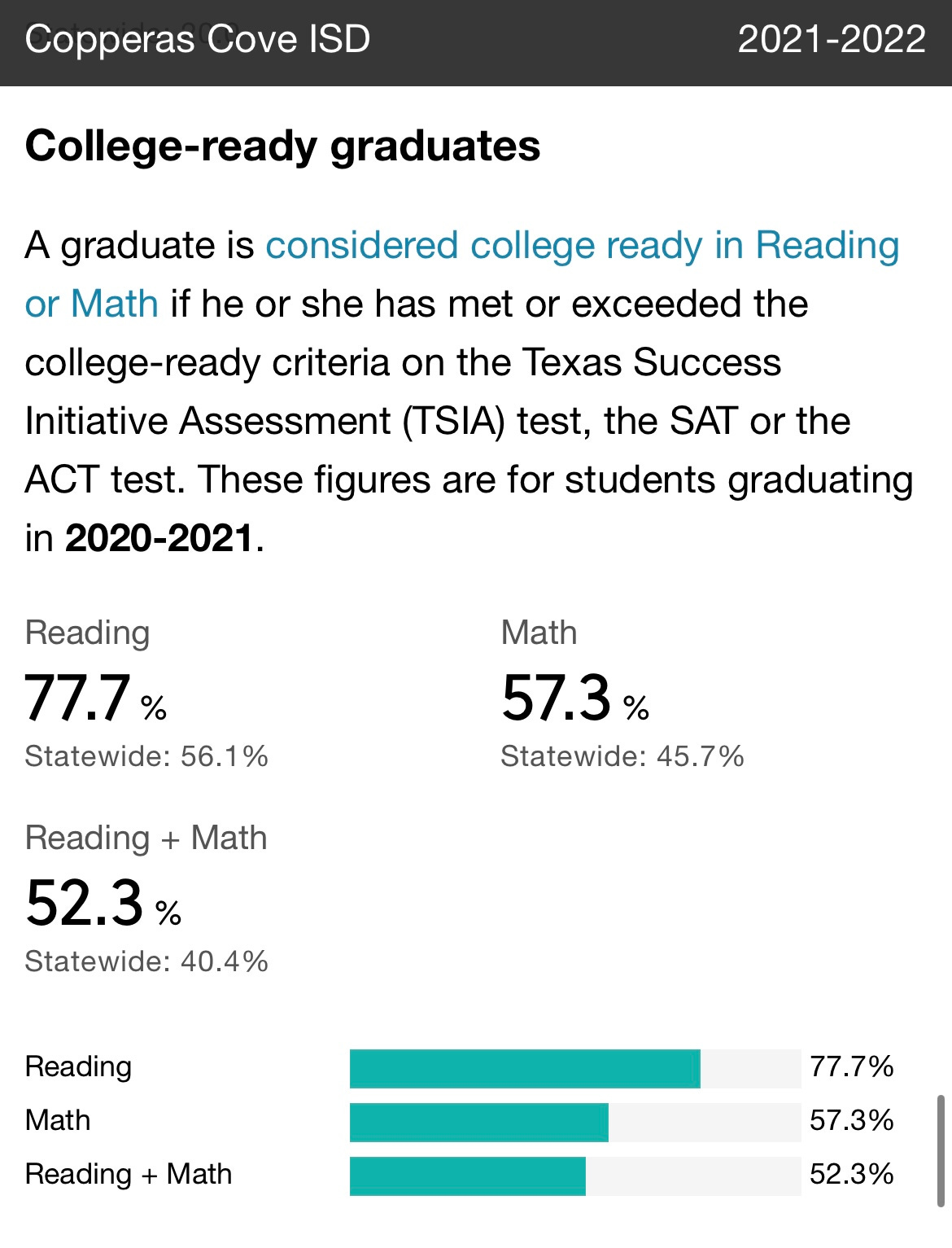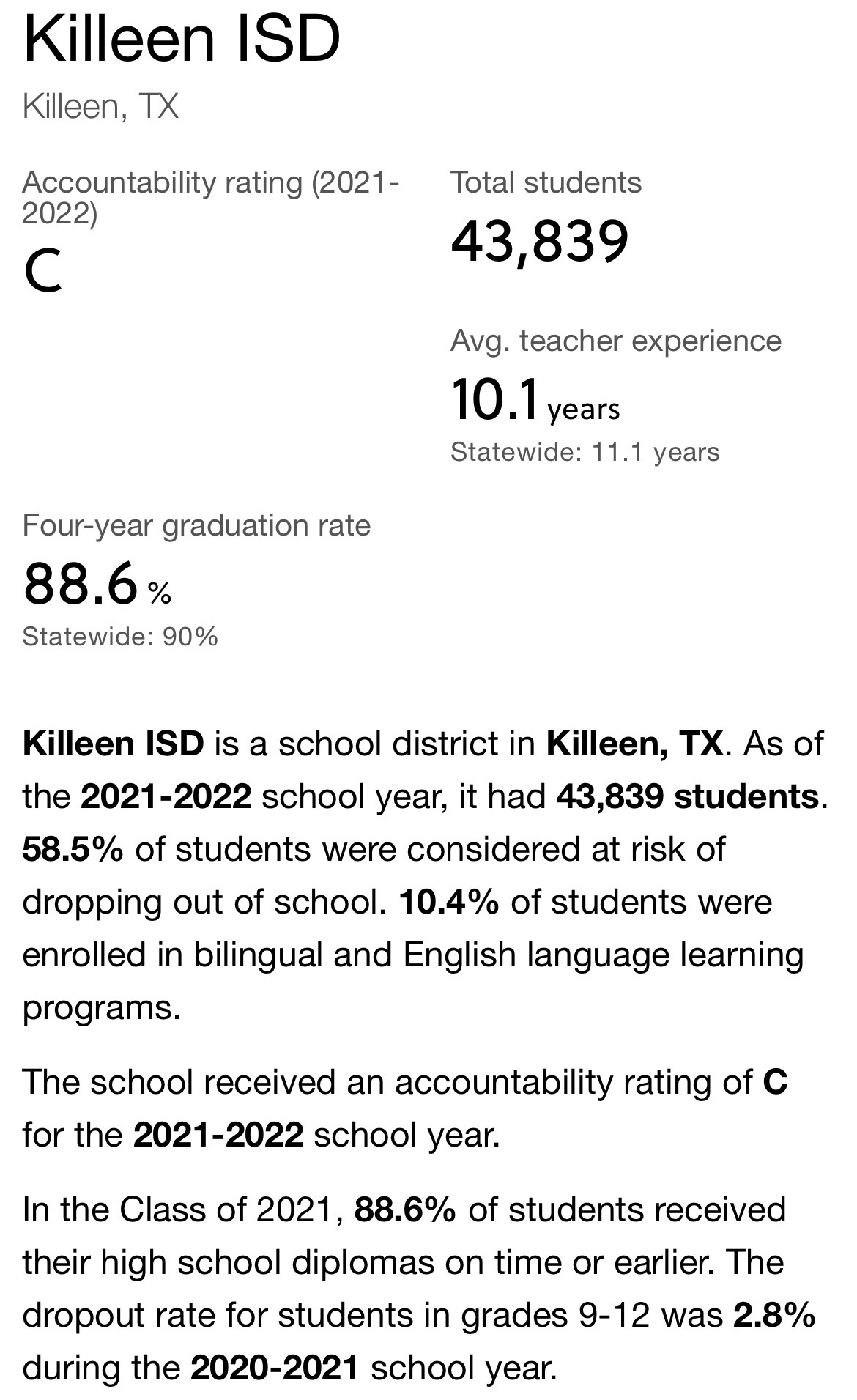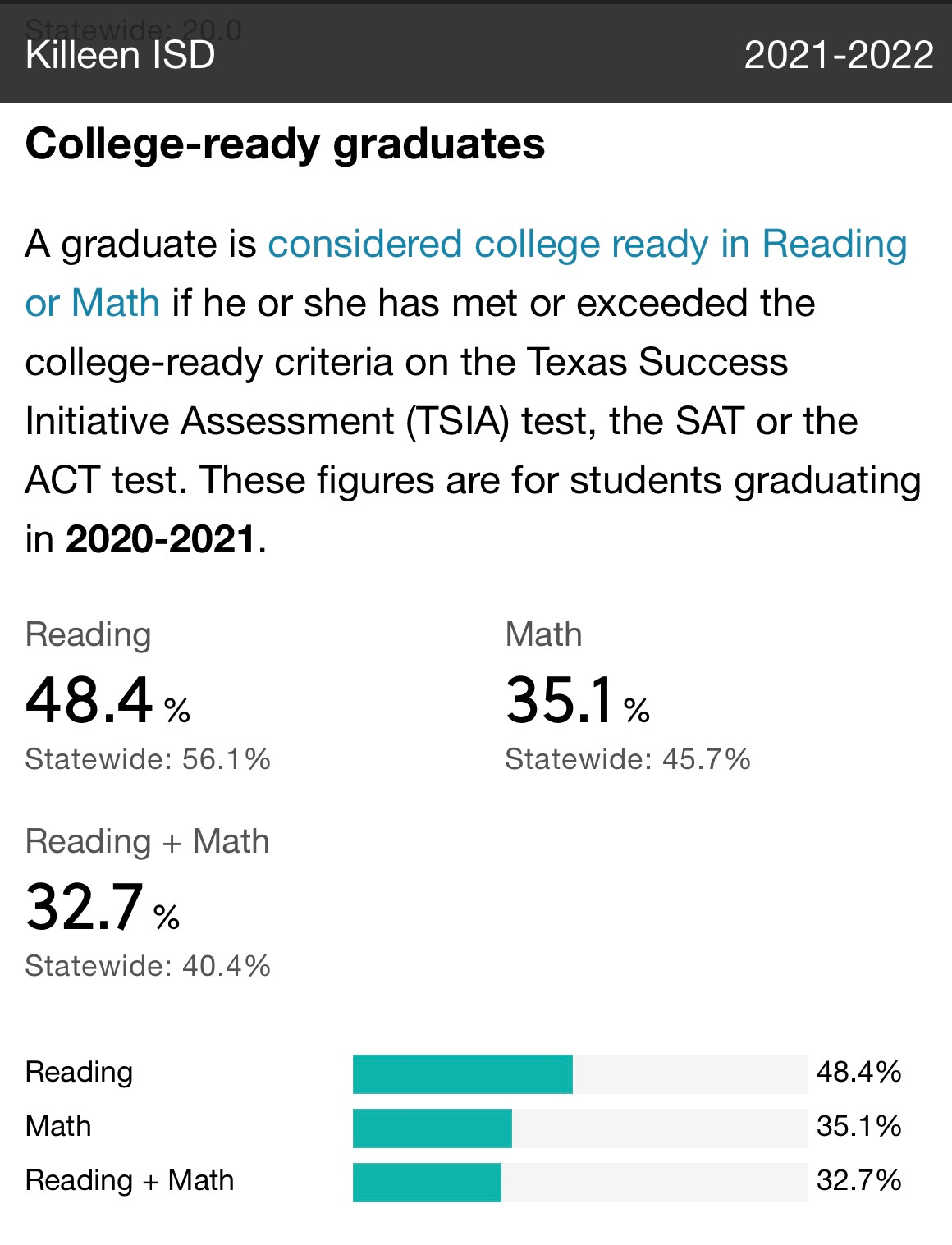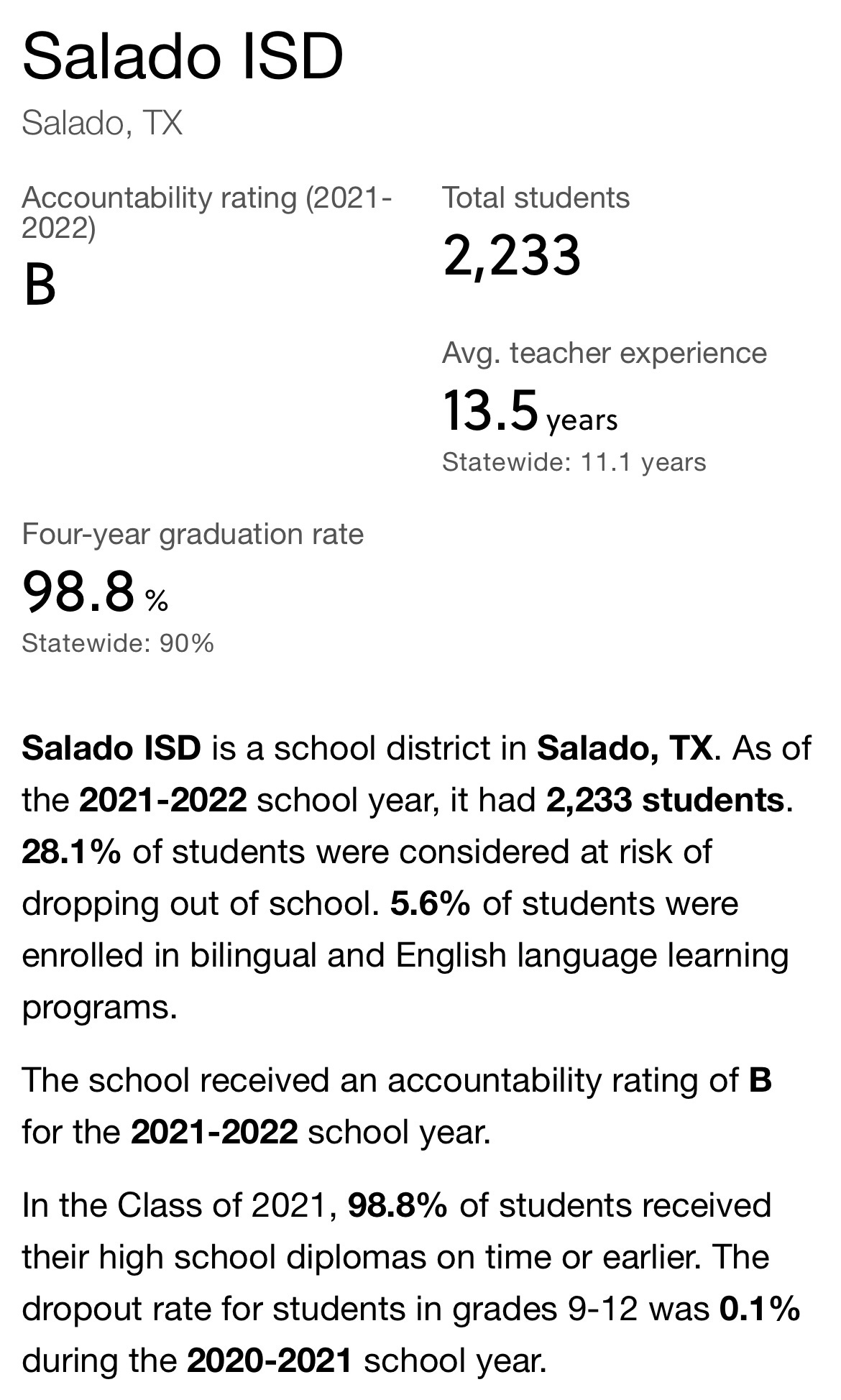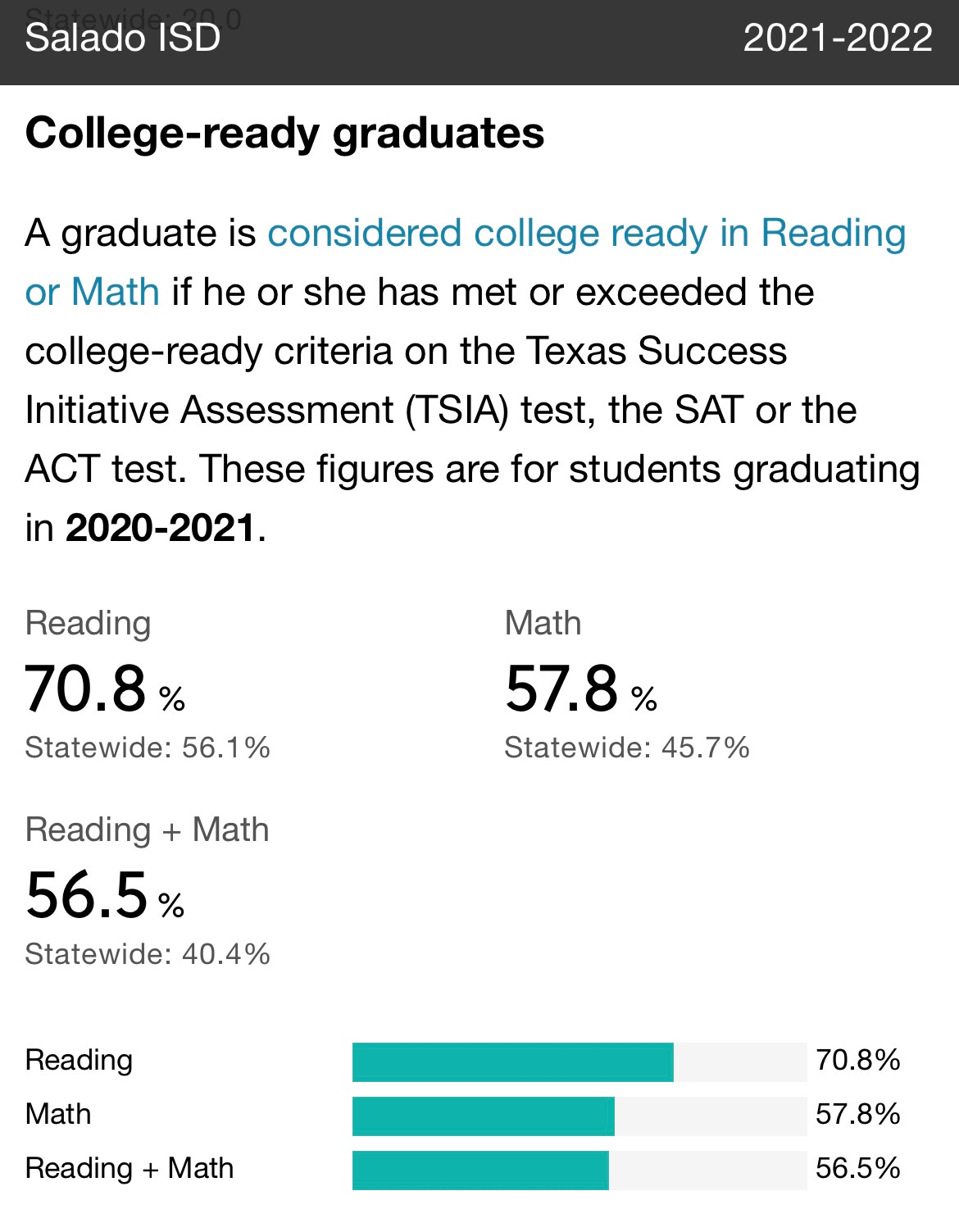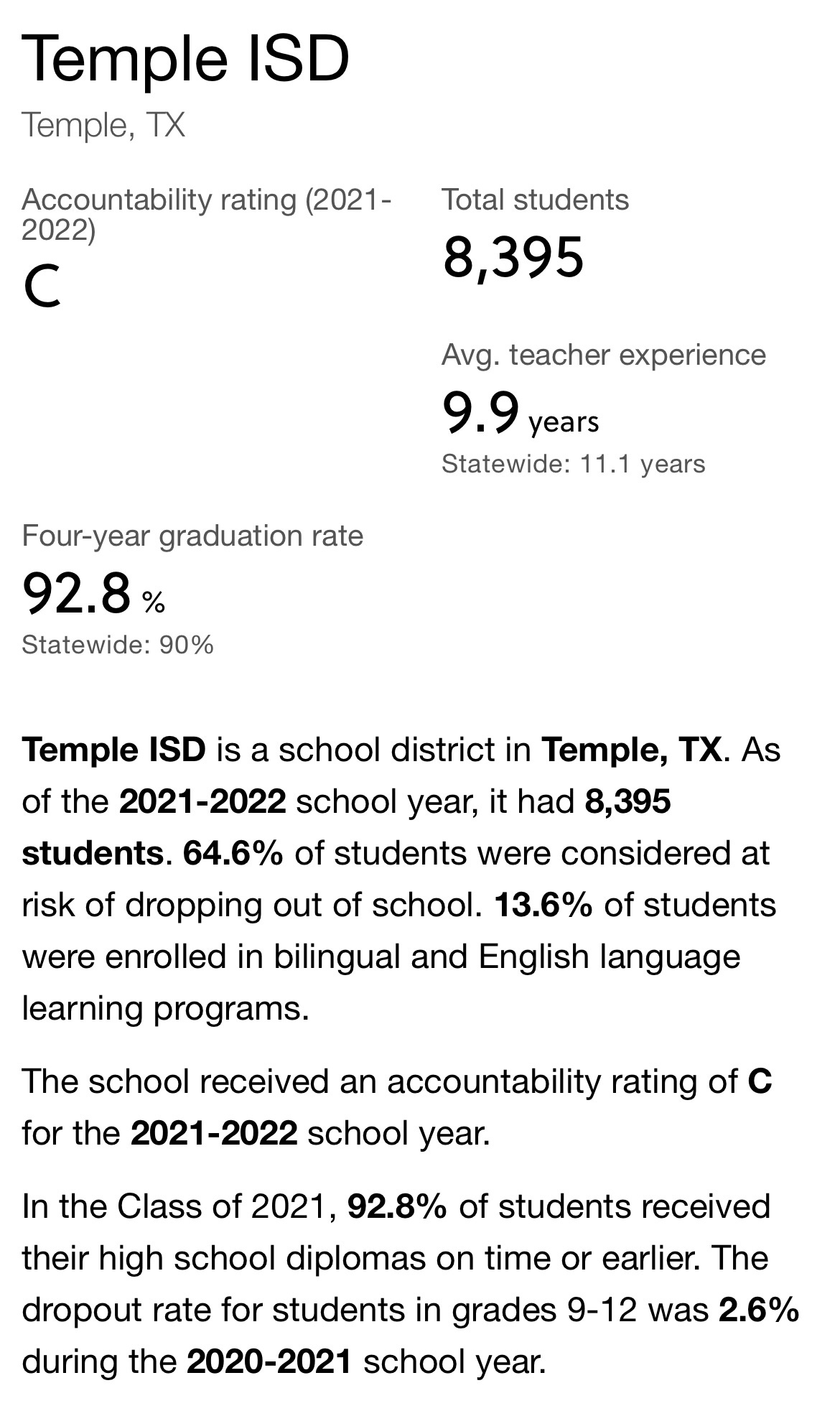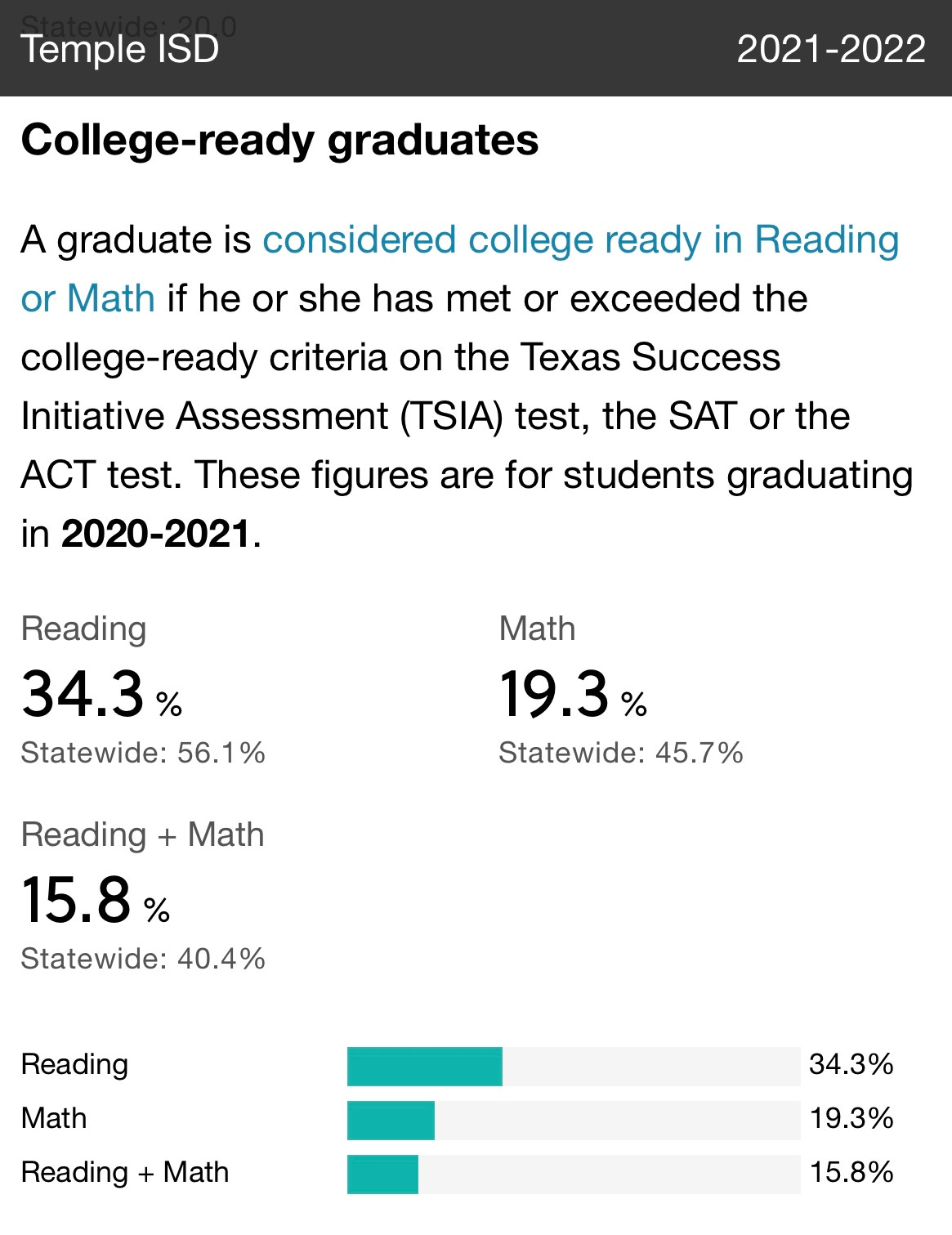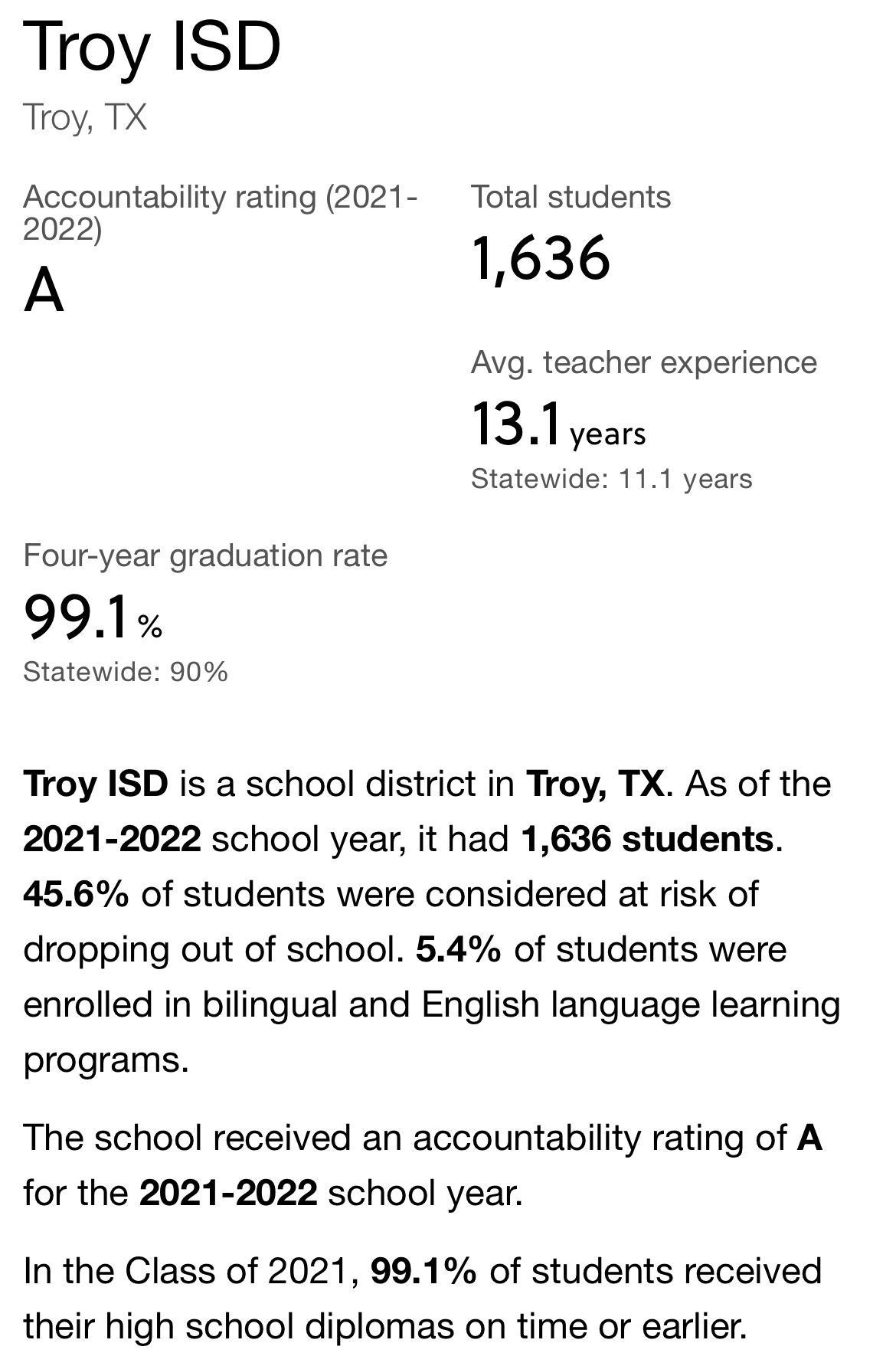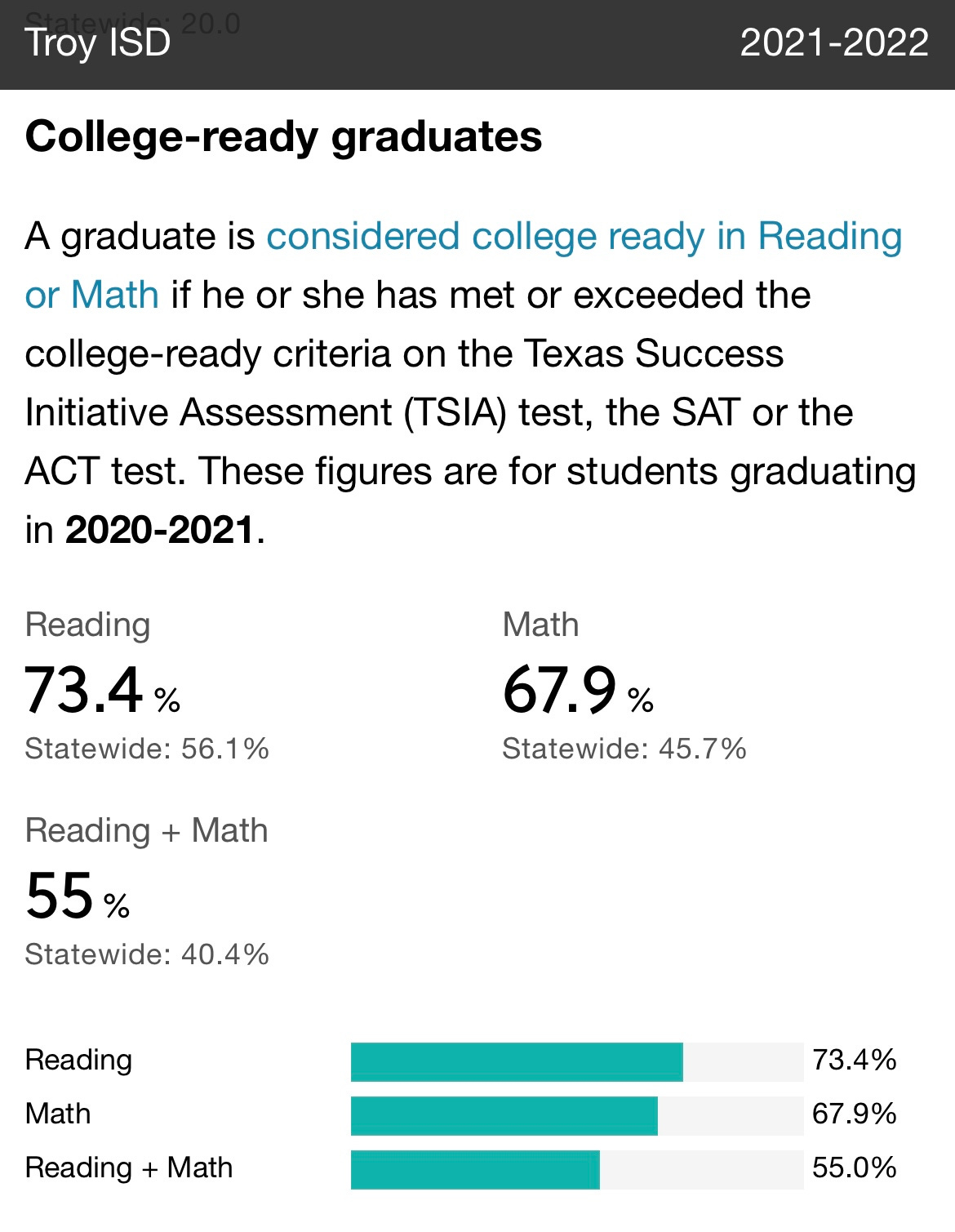Public school aficionados routinely dominate bond election campaigns with “for the children” rallying cries, but shift the conversation to school choice and an uncompromising government-centric focus of “for the (public education) system” emerges.
This dynamic is well illustrated in a recent Temple Daily Telegram article headlined Supporting public education: Shine, Buckley differ on school vouchers. Bell County is home to Texas House Districts 54 and 55 represented by Rep. Brad Buckley, R-Salado, and Rep. Hugh Shine, R-Temple, respectively.
The article acknowledges Shine as “among 21 Republicans who supported an amendment to strip school vouchers from an education funding bill on Friday during the fourth special session of the Texas Legislature.”
The bill was written by neighboring representative Buckley, current chair of the House Select Committee on Educational Opportunity and Enrichment, and included public school funding as well as an education savings account provision. The alliance of Shine and other Republicans with Democrats to strip ESAs from the legislation effectively gutted the original intention of the bill.
Not our first rodeo
Temple ISD Superintendent Bobby Ott, prominently featured throughout the article, took issue with the legislative mechanics of this measure.
Ott told the Telegram how he is concerned that elected officials continue to combine education funding and school vouchers into a single bill.
“These issues should be treated separately in the democratic process and allow for elected officials to vote accordingly,” he said on Monday. “There’s a constitutional duty to provide an adequate system for public education and withholding any dollars as a ransom for vouchers is unacceptable. Let public education funding and vouchers stand on their own merits for a vote as opposed to manipulating the democratic process. If they both pass on their own we deal with it, and if they both fail we deal with it.”
Longtime legislative observers have seen education bills of all configurations introduced – and later fail. Usually, they never get out of committee. That this bill got to a floor vote and provided concessions for both sides was significant.
School choice bills being a regular feature of Texas legislative sessions for years was noted by The Texas Tribune:
"We are excited to see a Texas House education committee pass school choice for the first time since 2005," Tommy Schultz, CEO of the American Federation for Children, said in a statement. "It's time to get this done."
Perhaps Ott hopes we don’t remember Buckley’s predecessor, Rep. Jimmie Don Aycock who also was chairman of the House Public Education Committee. During his tenure, Aycock worked tirelessly to maintain the public education power base, an effort that showed itself in fact to be a family affair as Aycock’s daughter was a prominent education industry lobbyist.
With that history, Buckley’s latest effort, candidly speaking, appeared to be a “sweeten the pot” measure that would offer enough incentive for the public school establishment to compromise so that parental empowerment advocates could finally realize progress for their children.
Advocates for school choice want exactly that – freedom to choose. They support education using some combination of private or charter schools, home schooling and public school options. And in an open market, other new instructional models may emerge to further enhance education opportunities.
Opponents meanwhile want public schools.
And as noted earlier, a government-centric apparatus with an uncompromising “for the (public education) system” focus has shown itself willing to cede no ground and use limitless taxpayer-funded resources to that end.
What does “the base” really think?
The Telegram further cited Ott’s criticism of Gov. Greg Abbott:
Ott previously noted other disappointments of his regarding how public education is being handled at the Texas Capitol — particularly regarding the tactics Abbott has used throughout the year.
Those maneuvers, which he emphasized are not reflective of leadership, have included sending out surveys that are misrepresentative of current Republican leadership at the local level and singling out Republican representatives who have voted for amendments against school vouchers.
“It’s disingenuous to do something like that,” Ott told the Telegram in May. “He’s ignoring and trying to get local representatives to ignore their base, and that’s a real problem when a majority of their base is supportive of public schools and opposes vouchers.”
No doubt Ott and other school officials may not the first people anyone would run to with a full-throated defense of school choice. After all, the past years have shown how dissension from public education orthodoxy can land one labeled as a “terrorist.”
Or maybe a little less extreme, as “CAVE” people—citizens against virtually everything, a reference used by presenters at a 2023 convention hosted by the Texas Association of School Boards (TASB) and the Texas Association of School Administrators (TASA).
At the same event, attendees were also instructed how “school trustees and administrators must be ‘proactive’ advocates for the district and public education in general,” a directive Ott, TASB's 2022 Texas Superintendent of the Year, seems to take seriously.
But when it comes to what taxpayers think about school choice, remove the bullies from the sandbox and a different picture emerges.
From Rep. Hugh Shine’s Media Profile Expanded With School Choice Opposition:
The 2022 Republican Primary ballot contained a proposition asking voters if “Texas parents and guardians should have the right to select schools, whether public or private, for their children, and the funding should follow the student.” Statewide, 87.78 percent voted “yes.” In Bell County, that number rose to 89 percent.
And this sentiment is not new. The 2012 Republican Primary ballot similarly featured a proposition that “allowed parents the freedom to choose their child’s school.” Statewide, 84.6 percent voted in favor of the proposition. In Bell County, that number was 84.85 percent.
Polling information is tricky based on who is asking the questions, who is being asked and how those questions are asked. That said, even The Texas Tribune reports how a University of Texas at Austin survey found a plurality of voters support some version of school choice while a Texas Hispanic Policy Foundation and WFAA poll “shows a majority of Texans want to expand school choice and allow parents to use tax dollars to send their children to private school.”
Despite Ott’s proclamations, it seems many Texas parents and other voters see school choice as a positive move for the children.
Do Bell County schools perform well for the children?
Too often public school performance is missing from the school choice discussion. In light of the Buckley/Shine split on the school choice issue, a look at Bell County school districts seems in order.
Earlier this summer we produced an analysis of seven Bell County school district libraries with an emphasis on sexually explicit book availability (Bell County: What’s in Your Public School Library? Part One, Part Two and Part Three).
A snapshot of the same districts – Academy, Belton, Copperas Cove, Killeen, Salado, Temple and Troy – has now been pulled with regard to student performance.
While claims of “cherry picking” information can (and often are) lodged, examining a key metric, “college-ready graduates,” seems indicative. Those numbers wouldn't be just about college readiness but rather they suggest readiness to move forward with any productive training needed to become an independent, self-sustaining adult.
Note that this information is from a Texas Tribune database which says this of its sourcing:
Most of the data is sourced from the Texas Education Agency’s annual Texas Academic Performance Report. We report all data as it’s released and labeled by the TEA unless otherwise specified.
Public education wants all and nothing
Thanks to the recent legislative gamesmanship, the Texas school choice debate will continue while the point that Texas public education system poorly serves too many students remains unresolved.
Texas Public Policy Foundation’s Brian Phillips describes public education’s “plight”:
The people who run Texas’ public schools have had it rough, I guess. They continually claim the schools are underfunded, that teachers aren’t supported, and the STAAR test and A-F Accountability ratings are unfair. But it seems the ultimate and most unacceptable indignity is the idea that they should be more responsive to parents – the very people they are supposed to serve.
Describing Buckley’s bill, he further writes:
It added $7 billion in new funding, on top of the $6 billion in new money already appropriated and issued this year – making it the largest single education funding increase in state history. The proposal included significant support to recruit, retain, and reward the best teachers in Texas. It improved teacher work / life balance, offered a pathway to a six-figure salary, included a $4,000 bonus, increased the Basic Allotment, and created a residency program for aspiring new teachers. HB 1 also eliminated the STAAR test, phasing it out over 3 years and setting a path to replace it with a new and improved assessment system.
Alas, despite a historic increase in funding, new benefits for teachers, including a raise and a bonus for everyone, and rethinking school assessment, it seems that empowering parents was the bridge too far. School leaders and ESA opponents in the House were willing to forgo billions of dollars because a low-income parent in a chronically failing school might be able to force someone to finally respond to her concerns.
The deal legislators walked away from supports an “all and nothing” public education stance - all the resources for public education and nothing for school choice advocates.
“For the children” or “for the education system”? That’s the choice public education, its taxpayer-funded lobbyists and allies – legislative and otherwise - have created.
The March primaries will be here soon. It’s time to pick a side.
Lou Ann Anderson is a writer, former radio producer and current podcaster at Political Pursuits. Her tenure as Watchdog Wire–Texas editor involved covering state news and coordinating the site’s citizen journalist network. As a past Policy Analyst with Americans for Prosperity–Texas, Lou Ann wrote and spoke on a variety of issues including the growing issue of probate abuse in which wills, trusts, guardianships and powers of attorney are used to loot assets from intended heirs or beneficiaries. She holds a degree from the University of North Texas in Denton.






